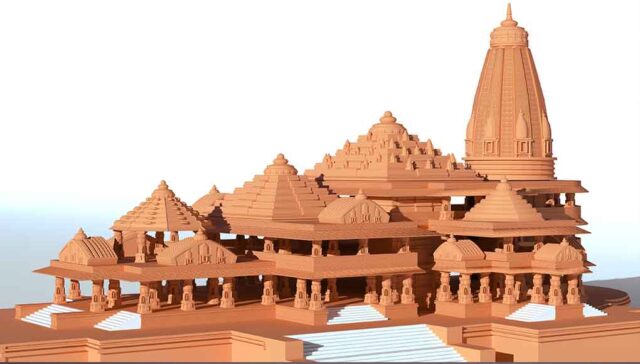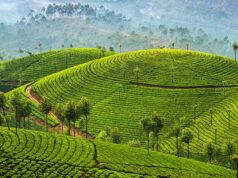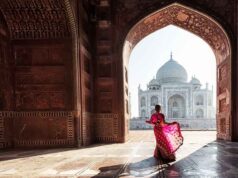Ayodhya is considered to be the holiest place for Hindus because Lord Ram was born here, called the Ram Janmabhoomi. After all the years of dispute, the Babri Masjid – Ram Janmabhoomi issue finally came to rest and the foundation stone for The Ayodhya Temple has been laid with much fan fare. The construction of this temple has received donations in the form of gold and silver from Hindus all across the world.
The Ram Mandir will be built on 10 acres of land with the remaining 57 acres being used as the temple complex. The structure will have 5 mandaps – kudu, rang, nritya, kirtan and prarthana.
Here are 5 Things You Need To Know About The Ayodhya Temple:
1. Architects Behind The Ayodhya Temple

The Ram Temple is Ayodhya is being built by the Sompura family of temple architects, led by the patriarch Chandrakant Sompura.
Chandrakant Sompura had started to work on the temple 30 years ago, after he first visited the site.
2. Started With Pencil Sketches

Initially Sompura would make the primary pencil drawing and the inking would be done by experts on tracing paper. He had drawn up two to three plans for the temple, one of which was approved by the VHP.
3. A Look Inside The Ayodhya Temple
The temple design follows the Nagar ‘shaili’ and Dravidian style of architecture. It is set to reach a height of 161 feet, width of 235 feett and length of 360 feet.
It will be built on a raised platform and will have the four features of a typical Hindu temple.
The ground floor will house idol of “Ram Lalla”, first floor will house “Ram Darbar” and the second floor will accommodate the expansion of the structure.
4. Some facts about the temple

The number of columns has gone up from around 160 in the original plan to 366 and each of them will have 16 idols.
2 lakh bricks inscribed with “Sri Ram” (Lord Ram) have been collected to form the temple’s edifice.
The construction is expected to be completed in three to three and a half years.
5. Holy Soil From 2,587 Locations To Be Used
It is said that the foundation of the temple is going to contain soil from 2,587 places across India, which are of religious and cultural significance. Holy soil from places such as Yamunotri, Haldighati, Jhansi Fort, Massacre Ghat in Kanpur, Chittorgarh, Shivaji’s Fort, Brahmaji’s peg in Bithoor, Prayarag where Chandrashekhar was martyred, Golden Temple, Nana Rao Peshwa Fort, Bengal, Kedarnath, Badrinath, Gangotri, Syntu Ksiar, Jowai and Nartiang in Meghalaya, Kamakhya temple, Agni Theertham in Rameshwaram as well as soil from former PM Atal Bihari Vajpayee’s ancestral home in Bateshwar village in Agra was all collected.
What do you think about The Ram Mandir? Leave a comment in the comments section below.









